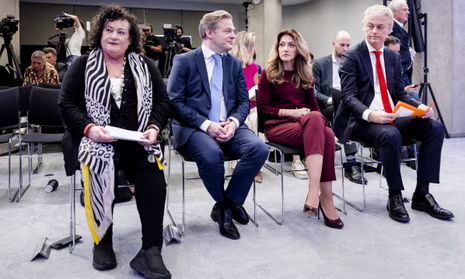Latest reports suggest that the Netherlands’ new right-wing coalition government aims to reintroduce daytime speeds of 80mph on motorways as part of a number of proposed changes to the country’s environmental policies which have sparked concern.
The move echoes the anti-green stance of other right-wing parties across the continent, as environmental issues become popular bogeymen for populist politicians. In Germany, for example, heat pumps have been politicised, as members of the far-right party AfD have called the Green party “our enemies’.
On Thursday morning, the far-right politician Geert Wilders announced that his anti-Islam, anti-immigration Party for Freedom was forming a coalition with the centre-right People’s Party for Freedom and Democracy (VVD), pro-reform party New Social Contract and the Farmer-Citizen Movement.
A 26-page coalition accord titled “hope, guts and pride” outlined measures aiming to reduce migration, introduce constitutional reform, address a housing and cost-of-living crisis and row back on climate change and pollution policy.
Read also: Biden advocates end to new leases in US’s largest coal-producing region
Under previous governments, the Netherlands was seen as one of the forerunners of Europe in adopting renewable energy sources – especially in solar power – and planning to drastically reduce animal farming to address its manure-based pollution problem. But, although the small, low-lying country would be partially submerged without action on rising sea levels and river flood risk, there is little in the accord on climate change.
Echoing far-right sentiment across Europe, Wilders’ own manifesto pledged to give “no billions to unnecessary climate and nitrogen pollution policy” and “stop the hysterical reduction of CO2”, while putting climate rules through the shredder. “For decades, we have been made to fear climate change and although the predicted disaster scenarios – over the whole world – were supposed to get more and more extreme, none of them have happened,” it claimed.
He did not gain enough cross-party support to become prime minister and the coalition will have an experimental structure, recruiting 50% of ministers from business. A multi-year climate change fund remains, although with €1.2bn less invested in the next four years.
Story was adapted from the Guardian.
